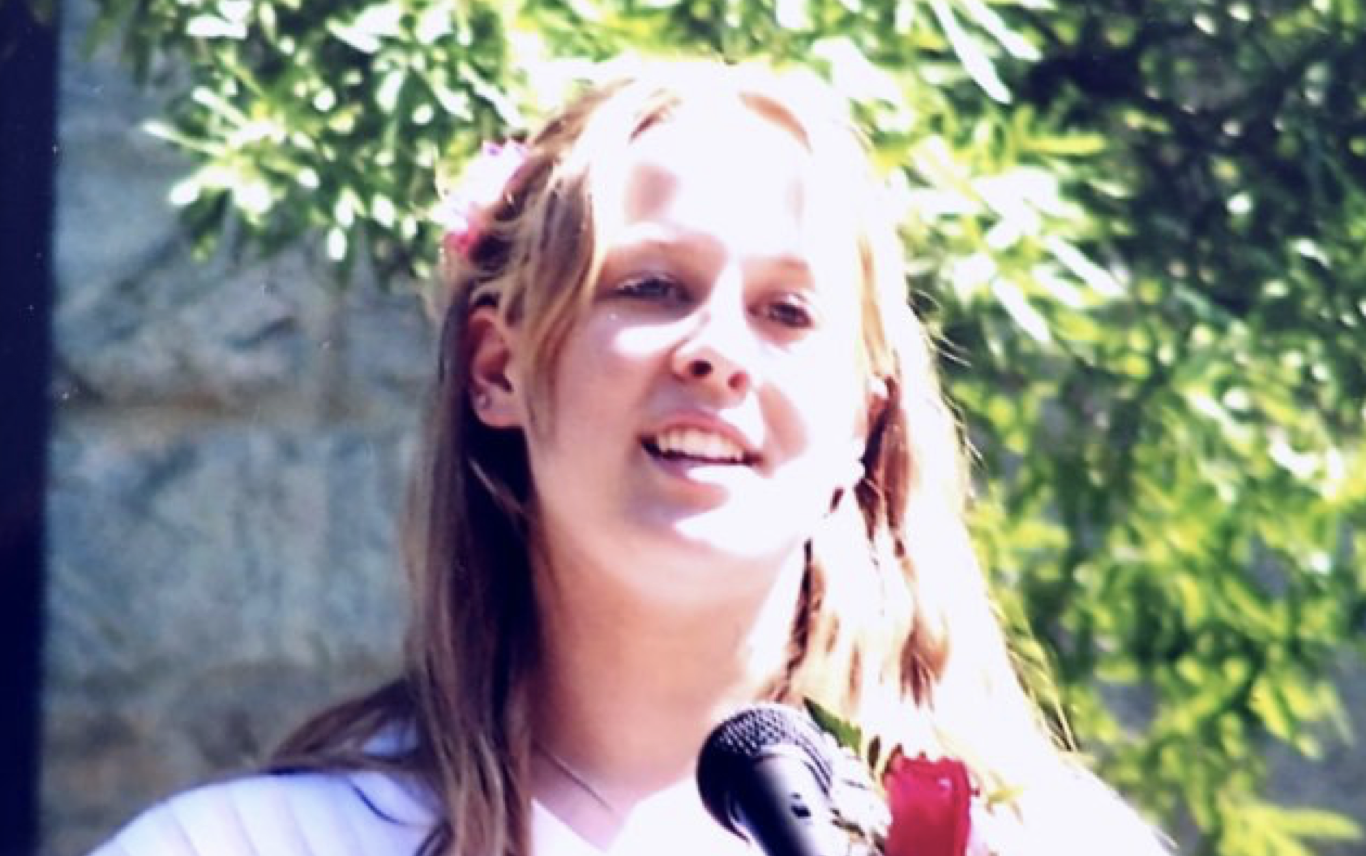Family Support Story
Phoenix Outdoor: Making the Argument for the Importance of Family Support
This is Laura at age 17 as she graduated from Carlbrook School after spending 2 years in a sequestered, therapeutic boarding school environment. For those of you that don't know, my daughter Laura died on December 21, 2017 from a drug overdose, just shy of her 30th birthday. When this was taken in 2004, Laura had completed wilderness therapy treatment, been in therapeutic school for two years, and was just getting ready to go to college.
As a result of our experiences in treatment, my husband and I made the decision to start a licensed wilderness therapy program in 2004, Phoenix Outdoor running it for 3 years, then selling it to CRC Health (now Acadia Healthcare) in 2007. The program was designed to change the way these adolescent treatment programs functioned by focusing significant efforts on treating the family while we were treating their adolescent.

We Were a Traumatized Family
Laura's behavior and her drug use was life-threatening. We had tried securing the house, restricting her activities, alerting the schools, therapy and a host of other strategies.... none were working. We hired an educational consultant, picked a program and Laura was on her way to wilderness therapy in late December after she went missing and ended up using cocaine in someone's basement.
I decided to "come out" to my friends and family about what I considered a life-saving decision for Laura, only to be met with a lack of understanding and support that further embarrassed, confused and traumatized us. The wilderness program worked wonders with Laura, but because our family was hurt and confused we were in no position to make the next big decision - what happens after wilderness is over? We designed Phoenix Outdoor to make sure that parents who entrusted their children to us for treatment and had to make that next big decision didn't have to walk the same path as we did.
The Kid is in Treatment: What's Going on in the Family
Friends and family don't get it.
I had done a good job hiding the level of chaos that was going on with Laura from friends and family,. They knew some of it, but not the extent of the problem. So when that child needs to leave the home for treatment, they are going to be ignorant of the problem, surprised at what seems like a radical decision, and second-guess your decision. When I told friends for the first time, I heard: "I can't believe you would send her away. Why haven't you tried something else?"
You will go on a giant guilt trip.
"If you don't come get me right now, I'll hate you and never forgive you as long as I live." Parents just removed their child's freedom along with their ability to access the substances that their brain now craves. Kids are going to move heaven & earth to regain access. This was almost always the text that came with the first letter to parents of the several hundred children that we treated. Imagine how guilty those parents must be feeling at this point.
The family will second-guess their decision.
We are feeling a rash of emotions, guilt for sending our child away, regret for not being able to fix the problem, shame that our child has turned out this way, anger at our child, ourselves & our friends. The list goes on and on. The second guessing is almost paralyzing.
First fear, then relief, then panic.
Parents know that their child is safety sequestered in treatment and the fear that they have felt melts away into a sense of relief. But as the days tick by, all of a sudden panic sets in because the release date is coming up soon and they are likely confused and uncertain about what comes next. Do they bring their child back into the home, commit them to extended treatment or what's next?
At Phoenix Outdoor, we helped parents see the courage in their decision. We provided therapy and education for the family so they could equip themselves to make hard decisions, and we gave them the tools to talk to their friends and family in an informed and appropriate way. It worked so well that we gave our competitors our program materials, encouraged them to use it, and then sold to a much larger company with a bigger footprint and more influence.
My Takeaway
If you are a parent that is struggling to make these tough choices, you are brave, committed and a good parent. You're doing what you need to do to save a precious life, so don't second-guess yourself. If you are one of those friends & family members, be there for support. You will never know what it's like to walk in the shoes of those parents and how difficult their decisions were. Don't judge because the next time it might be your child that is in that position. Addiction affects the entire family and that family needs support and understanding.
InterAct LifeLine is committed to providing treatment programs and organizations with easily accessible, effective, and affordable treatment options using virtual care technology. Virtual care removes geographical constraints or societal stigma that deter individuals from seeking the help they deserve. We empower state and local governments and organizations offering opioid abatement programs with efficient ways to inform, engaged and reach their audiences. Reach out to us for more information about our digital mental health and addiction treatment technology.
Get Started with InterAct LifeLine
InterAct connects individuals to treatment, support
communities & families to improve recovery.
